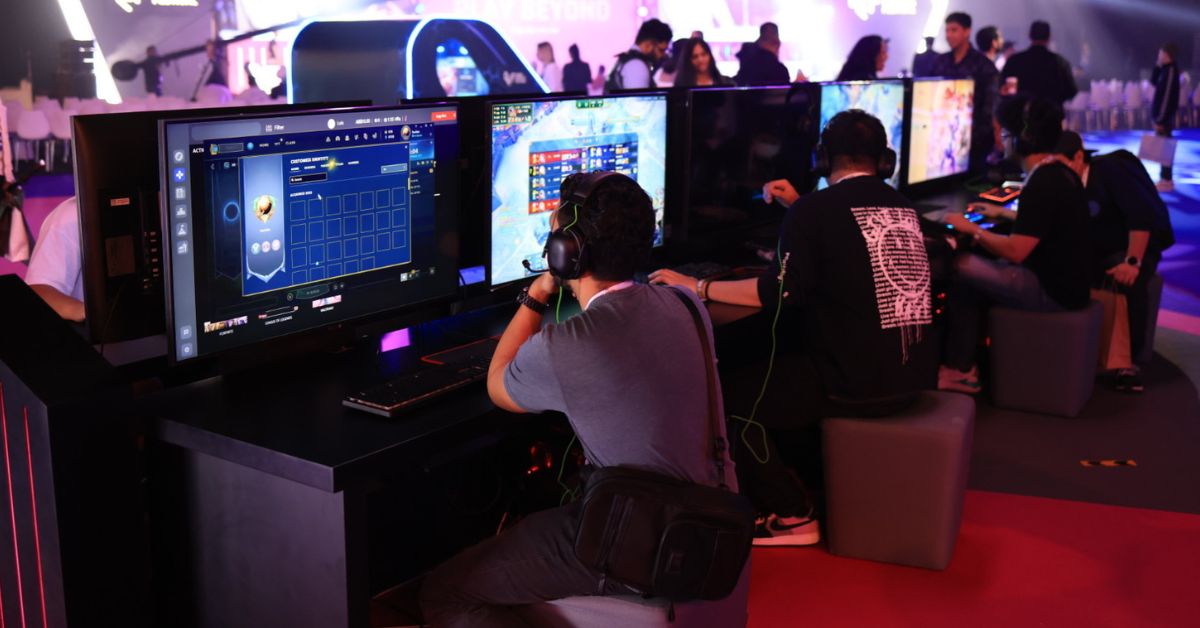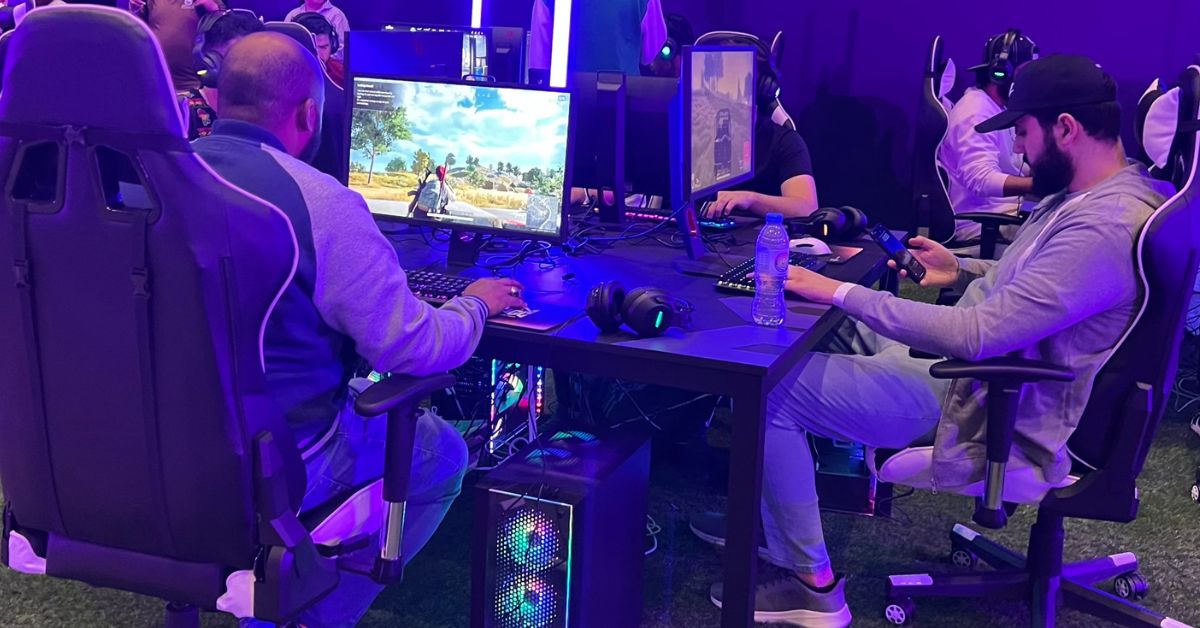DUBAI, UAE — The Middle East and North Africa (MENA) region is experiencing a gaming revolution, with approximately 60 percent of its population embracing gaming and esports. The region’s rapid advancements and unprecedented government investments are shaping the future of the gaming industry.
According to a recent report by the Boston Consulting Group (BCG), Saudi Arabia’s Public Investment Fund (PIF) invested over US$3 billion in the gaming industry in 2022. This substantial investment is part of PIF’s larger commitment of US$38 billion, dedicated to its subsidiary company, Savvy Games Group (SGG).
Notable acquisitions in the gaming and esports sectors, including Embracer Group, Scopely, ESL, FACEIT, and VSPO, have already been completed. Furthermore, Abu Dhabi Gaming has established a dedicated gaming and esports hub, offering attractive incentives to industry players.
The MENA region boasts one of the highest shares of gaming mobile app downloads, accounting for 50 percent compared to the global average of 40 percent. This significant figure is a testament to the region’s concentrated population of gaming enthusiasts.
“The Middle East is a key player in the global gaming industry, with an impressive penetration rate and a strong commitment from governments to invest in the sector,” said Alexander Schudey, Managing Director & Partner at BCG.
Schudey further highlighted that the region’s gaming environment thrives due to its young and technologically knowledgeable population, particularly in Saudi Arabia, where 70 percent of the population is under the age of 30. The region’s high disposable incomes and a preference for indoor activities, influenced by the hot weather, contribute to the growing gaming culture.
The Middle East is a key player in the global gaming industry, with an impressive penetration rate and a strong commitment from governments to invest in the sector.
Alexander Schudey, Managing Director & Partner at BCG
The report also revealed a robust indication of the Middle East’s inclination towards gaming through the substantial growth of game streaming, projected to reach approximately 200 million users by 2025, with a compound annual growth rate (CAGR) of 24.5 percent. This growth rate is three times faster than the current leader, China, which has a CAGR of 7.6 percent.
The region’s versatility and potential for expansion are evident in the industry’s focus on mobile gaming alongside the continuous popularity of console and PC games.
Government investments of nearly US$38 billion in gaming companies in Saudi Arabia, coupled with generous incentives for gaming enterprises in Abu Dhabi, underscore the region’s dedication to developing a thriving gaming industry, according to Pavel Kasperovich, Principal at BCG.

The United Arab Emirates (UAE) and Saudi Arabia are uniquely positioned to offer gaming and esports-related tourism experiences to an international audience, further boosting the industry’s growth in the region.
BCG’s analysis identified four key trends that will have a lasting impact on the gaming industry. Firstly, the audience is expanding, and demographic shifts indicate that Generation Y, who grew up playing video games, are entering their 30s, with the average gamer’s age being 31. Additionally, the younger generations, particularly Generation Z, are emerging as primary growth drivers, as they are more inclined to gaming than any other form of entertainment.
The second trend focuses on innovation by players, facilitated by platforms like Roblox and Minecraft, which empower users to generate content and innovate within games. Developers and publishers are quick to integrate and commercialize user-driven innovations, fueling consumer-driven innovation.
The third trend is the growth of the gaming industry through mergers and acquisitions (M&A). Major publishers, media organizations, and technology companies are acquiring studios and gaming-related assets worldwide, resulting in significant consolidation within the sector. This consolidation enables scaling up, increasing research and experimental development (R&D) expenditures, and exploring new intellectual properties (IPs) to further enhance the gaming experience and generate additional revenue streams.
SECTOR HIGHLIGHTS * MENA region poised to shape the future of gaming with strategic investments and government support. * UAE and Saudi Arabia well positioned for gaming and esports tourism growth. * Saudi Public Investment Fund invests $3 billion in gaming industry, part of $38 billion commitment. * Government investments and incentives underline MENA's dedication to thriving gaming industry. * User-driven innovations are facilitated by platforms like Roblox and Minecraft. * Gaming industry pioneers metaverse development, enhancing digital experiences.
In the first half of 2022 alone, over 650 M&A or investment deals were announced or closed in the gaming industry, with the top five companies now controlling more than 70 percent of the market. This wave of consolidation allows companies to consolidate game development expertise, expand internal capabilities, and leverage cutting-edge technologies such as in-game advertising and motion tracking.
The fourth and final trend is the emergence of new use cases, with the gaming industry playing a pioneering role in the development of the metaverse. As an early adopter of metaverse technology, gaming has laid the groundwork for this revolutionary concept, which is reshaping digital experiences. Today, gaming not only drives user engagement in the metaverse but also contributes significantly to the advancement of metaverse technology itself.
Innovative game engines, motion tracking systems, and other cutting-edge technologies have seamlessly merged into the metaverse, expanding its capabilities and redefining the realm of possibilities. This integration allows for immersive and interactive experiences, enabling users to engage with virtual environments, socialize, and participate in various activities within the metaverse.
With its strategic investments, government support, and a population deeply engaged in gaming and esports, the MENA region is well-positioned to shape the future of the gaming industry. As the region continues to attract global gaming firms and foster a vibrant gaming ecosystem, it is expected to witness significant growth and contribute to the ongoing evolution of the global gaming landscape.
The MENA gaming market’s success story serves as a testament to the region’s commitment to innovation, technological advancement, and creating an inclusive and dynamic environment for gamers. As the industry progresses, it will be fascinating to see how the region further embraces gaming and esports, leveraging its strengths to solidify its position as a leading force in the gaming world.








